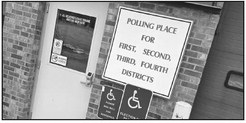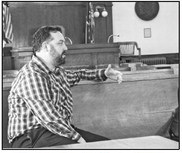State budget needs to focus on support of schools, local governments
The best tax relief measure members of the Wisconsin legislature can do as they begin to work on the biennial budget is to provide additional aid to school districts and local governments.
The state of Wisconsin is doing quite well financially with the state government projecting a $7.1 billion surplus at the end of the biennial budget. While there are many factors for this, and a whole lot of politicians eager to stand up and take credit for it, much of the money was due to the fact that Wisconsinites, by and large, never stopped working through the pandemic sending actual tax revenues higher than projections.
Two years ago, the state legislature sent a clear message to schools and local governments to use one-time federal grant dollars in place of any substantial increase in state funding within the budget. While the move was unpopular among many school district officials, it made practical sense.
With fears of a slow recovery at a state and national level, compounded by ongoing supply chain issues following the COVID-19 pandemic, state leaders chose to be cautious in making promises that state coffers may not have been able to cover.
There is a maxim when it comes to government spending, you should use one-time money for one-time expenses. By their nature, grants are focused and address specific things for specific periods of time.
While the COVID-related funding at the school and local government levels was broad in scope of what it could be used for, the major thing that was clear from the beginning was that the money was intended as a band-aid that would need to be ripped off at some point in the future.
Using one-time federal funds to supplement school and municipal budgets and compensate for inflationary increases set up the scenario of a fiscal cliff. Those working with school finance have been sounding an increasing alarm at the fiscal cliff that is fast approaching unless something is done at the state level.
Last week, Gov. Tony Evers gave the annual State of the State address and talked about some of the initiatives he would like to see in the coming budget. Politics being what they are, most of these will be dead-on-arrival when the governor’s formal budget proposal gets delivered to the legislature in a few weeks.
For their part, the legislature is also playing politics with an ample serving of pandering, with leaders proposing radical changes to the state’s tax structure and other measures.
As state leaders prepare to carve up the surplus bird, they need to remember the commitment to local governments and school districts and give additional funding that will help them continue to provide for local services and state-mandated programs. It is unconscionable for the state government to be sitting on a massive pile of money while forcing local governments and schools to go to referendum to make ends meet.
If state leaders want to be serious about tax control, they need to direct some of the budget excess toward real needs at the county, school district and local government level.
Members of The Star News editorial board include Publisher Carol O’Leary, General Manager Kris O’Leary and News Editor Brian Wilson.




